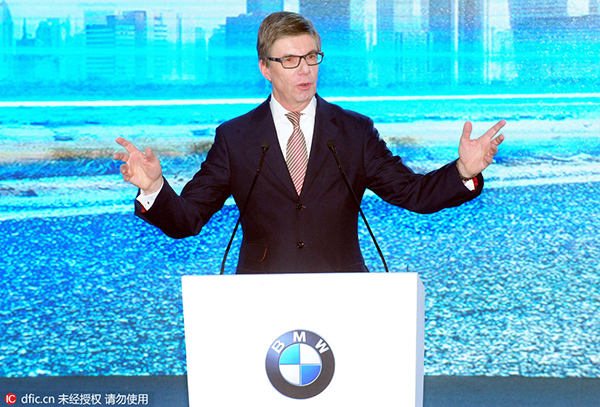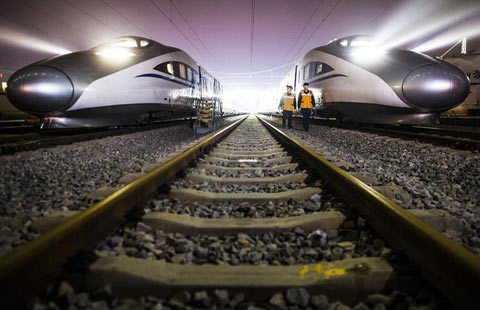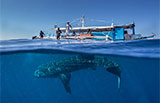BMW quickens pace of localization strategy in China
By Gong Zhengzheng (China Daily) Updated: 2016-03-07 09:49
 |
|
Olaf Kastner, BMW China president and CEO. [Photo/IC] |
Strong outlook
BMW is the second-largest premium car provider in China after Audi and ahead of Mercedes-Benz.
In January this year, BMW's sales in China climbed 8.4 percent year-on-year to 43,441 cars. Last year, it moved 464,000 cars in China, up 1.7 percent.
Kastner predicted single-digit growth for both the premium car market and BMW's sales this year in China, which is adjusting to its new normal economic model.
"Looking into the future, we see strong mid- and long-term scenarios. The Chinese economy has arguably the healthiest fundamentals despite structural imbalances. It also has a convincing track record of navigating through volatile cycles and there remains enormous demand for premium products and services," he said.
BMW's new product offerings for Chinese customers this year also comprise four new-energy models-such as the X1 and 7 Series plug-in hybrids-that will pad its new-energy lineup in the market to six, Kastner said.
He added that BMW will work with partners in China to build more than 1,000 charging posts for new-energy cars in cities this year.
Sales of new-energy vehicles have taken off since 2014 because of foreign and domestic carmakers' growing investments and incentives from the Chinese government.
Last year, sales of new-energy vehicle sales in the country soared 340 percent to more than 331,092 units, including 247,482 pure electric cars and 83,610 plug-in hybrids, according to data from the China Association of Automobile Manufacturers.
The central government expects that accumulated sales of new-energy vehicles from 2012 to 2020 will reach 5 million units.
The imported 730Li that launched in China last week retails between 898,000 yuan ($137,660) and 1,028,000 yuan.
The limousine is equipped with a two-liter, four-cylinder Twin-Power Turbo engine and an eight-speed Steptronic transmission. It produces maximum power of 190 kW at 5,000 to 6,500 rpm and boasts a top torque of 400 Nm at 1,550 to 4,400 rpm. The car can accelerate from zero to 100 km/h in 6.3 seconds. It averages 6.3 liters of fuel per 100 kilometers.
- The global impact of China's 13th Five-Year Plan
- Chrysler recalls 20,670 vehicles in China
- Chinese investment in Europe, US hit record high in 2015
- Stocks edge down on back of mixed macro figures
- Listed Chinese coal firm issues investor alert due to heavy losses
- China's new growth target realistic: HSBC
- China auto sales down 0.9% in February
- Australia places China high on innovation agenda
















